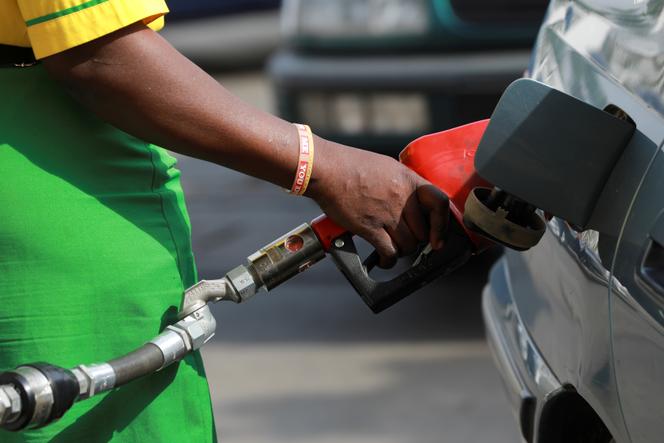


In early October, at the very last minute, Nigerian President Bola Tinubu managed to defuse a nationwide strike call. By announcing cheaper public transport and a temporary raise of the minimum wage for the lowest-paid workers, the leader of Africa's largest economy tried to respond to the growing fury with an increasingly more expensive daily life.
Fueled by the consequences of the war in Ukraine, galloping inflation is also the downside of the spectacular reforms initiated by the president as soon as he came to power at the end of May, including liberalizing the naira (the national currency) and, more importantly, canceling fuel subsidies. The end of this scheme led to a tripling of the price of gas, which was passed on to the cost of transportation, food and electricity.
Although painful, the measure was nonetheless applauded by investors and the International Monetary Fund (IMF), at a time when the country is burdened by a debt whose repayment absorbs over 90% of state revenues. Fuel subsidies cost nearly $10 billion last year (around €9.4 billion), in other words, a fifth of the federal budget and "four times the amount spent on health," pointed out the IMF in its new report devoted to economic prospects in sub-Saharan Africa. In it, the institution welcomed the fact that, following Nigeria's example, several countries on the continent "have embarked on major reforms of energy subsidies to create room for development spending."
From Senegal to Angola, via Ghana, Zambia and Congo, reforms have been announced or already implemented to raise the price of oil products. This is often an unpopular decision, but "the budgetary position of some countries has deteriorated to such an extent that they no longer have a choice," said Luc Eyraud, Director of Studies in the IMF's Africa Department.
While debt has increased steadily in recent years, countries are now trapped by the global rise of interest rates, which is driving up borrowing costs. Not to mention oil bills, which ballooned in the early months of the Russian-Ukrainian conflict, even in oil-producing countries that buy most of their refined fuel abroad.
Last year, Angola spent 1,900 billion kwanzas (around €2.2 billion) on controlling fuel prices, or over 40% of spending on social programs, according to the IMF. This major hydrocarbon producer announced in June that it would phase out subsidies by 2025. The same timetable is being followed in Senegal, where the amount of aid associated with energy products represented over 4% of GDP in 2022. In Congo-Brazzaville, classified as over-indebted and under an IMF program, the government resolved to cut its aid by 30% between February and July. Last year, this budget item was equivalent to what the country spent on the entire health sector.
"In addition to the fact that these subsidies often cost several points of GDP to the detriment of other spending, they have a highly regressive effect because they benefit everyone, including and often disproportionately the wealthiest," insisted Eyraud.
But their cut is generally hard on the population as a whole. This not only raises gas prices but also the cost of public transport and food supplies, which are major items of expenditure for poor households," pointed out Dominique Fruchter, a Coface economist specializing in West Africa. There is also an impact on small-scale industries that rely on generators. In Nigeria, for example, there are a great many of these."
The IMF and World Bank have long called for a halt to these price regulation programs while advocating for compensation measures targeting the poorest. However, this can be a highly complex exercise in countries lacking reliable data on their populations.
In Nigeria, the official register of vulnerable households lists some 60 million individuals. The World Bank, on the other hand, estimates the number at close to 90 million. It could rise to 100 million, following the abolition of fuel subsidies, if the government fails to provide adequate support for the most vulnerable segments of the population. In a report published in June, the institution urged the government to publish all future compensation amounts, eligibility criteria and transfer mechanisms, so that civil society can monitor compliance.
"When you cut a subsidy, it can result in significant savings, but it can also fuel a climate of mistrust in countries where transparency is lacking," said Rabah Arezki, research director at CNRS and former chief economist at the African Development Bank (AfDB), "People ask, where does the money go?"
In Angola, five people were killed in June during the protests that followed the announcement of the reform. "We've learned our lessons," confirmed Angolan Finance Minister Vera Esperança dos Santos Daves de Sousa on Tuesday, October 10, during the IMF and World Bank General Meetings. Could this extend to slowing down or even halting the movement? "Everything is open," she said.
In Kenya, President William Ruto abolished fuel subsidies when he came to power in September 2022. While the country has been rocked in recent months by violent anti-government protests against the high cost of living, temporary subsidies were reinstated in August. Proof that it is not easy to remove such price regulation measures with the stroke of a pen. Arezki concluded, "Today, because of the economic situation, countries are making clear cuts. But it has already happened in the past that these subsidies were removed and then reinstated under the pressure of uprisings."
Translation of an original article published in French on lemonde.fr; the publisher may only be liable for the French version.
